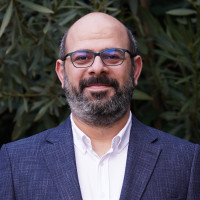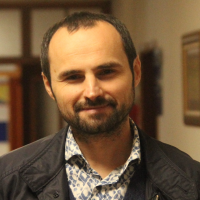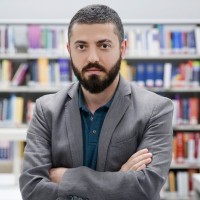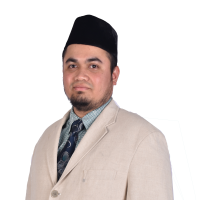Research Article
Issue Editorial Board


Erhan Akkas is currently an assistant professor at Sakarya University in Turkey. He graduated from Durham University with a Ph.D. in Islamic economics and finance in 2019, after obtaining his master’s in political economy from the University of Sussex. Akkas was a visiting research fellow at Durham University Business School as well as a lecturer at Agri Ibrahim Cecen University in Turkey between 2020 and 2022. An associate professorship was granted to him in February 2023 by the Turkish Interuniversity Board (ÜAK). Akkas has written many academic papers, policy briefs, and edited books. Akkas' most recent research focuses on political economy, Islamic economics, Islamic finance, economic develpment, and GCC countries.


He was born on 25 May 1983 in Dimetoka, Greece. In 2006, he graduated from Marmara University Faculty of Theology. He completed his postgraduate education at Marmara University in 2014 and received his doctorate degree in Islamic law. He is currently working as an Associate Professor at Sakarya University Faculty of Theology. His research interests include foundation law and history, classical-modern fiqh thought, late Ottoman legal thought and Islamic economics. Purpose in Waqf: A Research in the Framework of Hanafi Waqf Law, 40 Questions on Waqf, and The Literature of Islamic Law Studies in Turkey (1928-2012), as well as published articles and book translations.

Mervan Selçuk graduated from the Business Department of Istanbul University in 2014. He received his MA and Ph.D. degrees from Islamic Economics and Finance Department at Sakarya University in 2016 and 2021, respectively. His doctoral dissertation is about the feasibility of a monetary union in Islamic countries. He was a visiting researcher at Kuwait University between November 2018 - May 2019. Since 2015, Assoc. Prof. Selçuk has been a research assistant at the Research Centre of Islamic Economics and Finance, Sakarya University. His research areas include Islamic economics, monetary unions, and cryptocurrencies.







 Web
Web
İstanbul Medeniyet Üniversitesi

Alija Avdukic is currently a Professor in Islamic Economics and Finance at Al- Maktoum College of Higher Education and is the deputy director of Ph.D. & MSc Islamic Finance programs at Business School of the University of Dundee. Alija holds a Ph.D. in Islamic Economics and Finance (2016) from Durham University; and has MA in Islamic Banking, Finance and Management (2010) from Gloucestershire University. Alija completed his BA (2003) and PGDip (2007) from Al-Azhar University, Cairo, and Damascus University, Damascus.
Alija’s research interest in Islamic economics and its various articulations, Islamic moral and political economy, and Islamic finance and banking. Alija teaches and supervises research on Islamic political and moral economy, Islamic banking, finance, and the political economy of development in the Muslim world. Alija’s recent research includes the construction of Islamic moral economy and Islamic political economy, both of which is considered as an incomplete project since the early 1970s. Secondly, Alija develops the discourse around the ‘social and developmental failure’ of Islamic banking and finance in relation to the expressed ideals of Islamic moral economy by essentializing sharing and collaborative economy nature of Islamic finance. Alija is also involved in empirical research in various aspects and dynamism of Islamic banking and finance.

Dr. Amirul Haqeem bin Abd. Ghani IFP®, CQIF, joined Durham University as a Doctoral Student in October 2014 at Doctoral Training Centre in Islamic Finance, the same year in 2014 he was awarded Islamic Financial Planner (IFP) professional certificate and gained his Doctorate in May 2019. Prior to his academic career as a Senior Lecturer in Universiti Utara Malaysia (UUM), Haqeem, a graduate of Dundee University worked at Kuwait Finance House Malaysia as a professional banker. He is the Old Putra (OP) of Royal Military College (RMC). In February 2021 he finally awarded Certified Qualification in Islamic Finance (CQIF-Wealth Management) after completing all modules by IBFIM.
Externally, he teaches practitioner for Islamic Financial Planner. He is a trainer for Islamic Financial Planner by IBFIM-UUM collaboration since 2018 and still serving as a trainer every year for the university . He teaches and trained IFP candidate in all area especially case study from A to Z (Cash Flow, Networth statement, Risk management, Islamic Investment for Hajj and Education and Estate planning) Haqeem currently exploring the financial literacy, social disclosure, environmental reporting, green sustainability, and social impact of Islamic banks for his research interest. Haqeem ambition is to explore the accountability of Islamic banks and banks in general to seek evidence from its social reporting. In another route, Haqeem interested in the value of sincerity and responsibility that should be signalled by Islamic banks. With regards to holistic student development agenda, he had served two terms (2013-2014) as assistant principal at Telecom Malaysia residential hall advising and monitoring student development activities and currently served as assistant principalfor Student Residential Hall Malaysia Airlines, UUM for six terms(2019-present).
Teaching: Islamic Financial Planning (2019,2024); Islamic Accounting (2019-2020,2023); Risk Management and Takaful Planning (2021-2023), Regulation and Shariah Governance for Islamic Financial Institution (2020-2021) , Islamic Investment (2020-2021), Module Developer and Trainer for Chartered Institute of Islamic Finance Professional -Enterprise Risk Management (2020), Islamic Credit Analysis and Financing (2024)
Diploma in Banking, UiTM;
Bac. (Hon) Islamic Banking (1st-Class, Vice-Chancellor Award) UiTM;
MSc. Islamic Accounting & Finance, University of Dundee Scotland;
PhD in Islamic Finance, Durham University England;
Islamic Financial Planner (IFP) 2014, Certified Qualification in Islamic Finance (CQIF) 2021

Mohammad Rahim Shahzad is a driven researcher currently immersed in the pursuit of his PhD in Islamic Economics and Finance at Sakarya Üniversitesi, Turkey. His academic journey is characterized by a fervent dedication to unraveling the intricacies of Corporate Finance, Carbon Energy, and Islamic Markets.
As a prolific contributor to scholarly discourse, Mohammad's publications stand as a testament to his commitment to advancing knowledge in his field. His research endeavors have yielded impactful insights, as evidenced by his publications in esteemed journals such as the Global Finance Journal and the International Journal of Emerging Markets. These publications delve into topics ranging from tail risk transmission in technology-driven markets to the interconnectedness of global uncertainties in emerging markets.
Furthermore, Mohammad's forthcoming research papers promise to further enrich the academic landscape, addressing pressing issues such as climate change risk, CO2 emissions determinants, and the linkages between extreme downside risk and financial markets.
In addition to his scholarly contributions, Mohammad actively engages with the academic community through conference presentations, where he shares his expertise on topics like cash Waqf-based finance and barriers to innovation in SMEs.
Supported by research grants and recognized with awards such as the NICM annual business plan award and the Best Lecturer award from Kandahar University, Mohammad's dedication to research excellence is evident.
His multidisciplinary approach, coupled with proficiency in tools such as R, Python, and statistical software like EVIEWS and STATA, equips him to tackle complex research questions and generate innovative solutions.
For those interested in collaborative research endeavors or seeking insights into the forefront of finance and economics, Mohammad Rahim Shahzad is a valuable resource. Connect with him via email at shahzad.rh1@gmail.com or explore his profile on platforms like Google Scholar and ResearchGate to delve deeper into his scholarly contributions and research interests.



 Web
Web
Sakarya Üniversitesi
Aim & Scope
Author Guidelines
Ethical Principles and Publication Policy
Publication Ethics and Malpractice Statement
Ethical Principles and Publication Policy
Price Policy
The services provided by IJISEF are free of charge. Author(s) do not need to make any payment for submission, processing and publishing their paper(s) in the IJISEF.
All articles published on IJISEF are licensed under the Creative Commons Attribution 4.0 International License. This license grants you the right to reproduce, share and disseminate data mining applications, search engines, websites, blogs, and all other platforms, provided that all published articles, data sets, graphics and attachments are cited. Open access is an approach that facilitates interdisciplinary communication and encourages different disciplines to work with each other.
